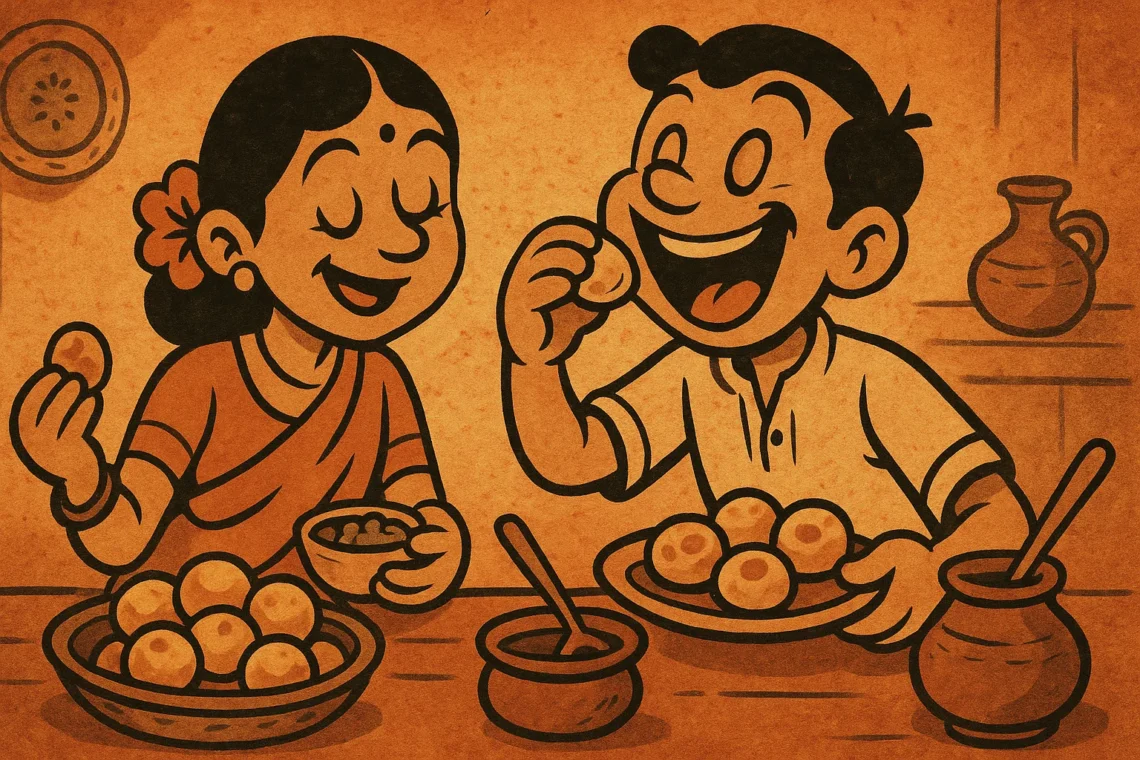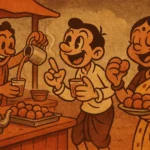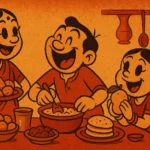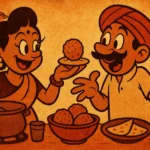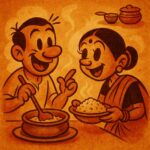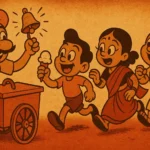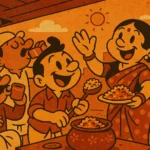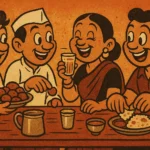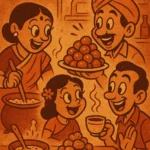It started with a breakup and ended with a pani puri stall. Not the kind in a restaurant, where they serve you six pieces on a ceramic plate with measured mint water. I’m talking about the real thing — roadside, shoulder-to-shoulder with strangers, standing under a flickering tube light, handing over a steel plate and your emotional baggage to the man behind the cart. He doesn’t know your story. He doesn’t ask. But somehow, by the third puri, you feel a little more whole than when you arrived.
The week she left, I couldn’t eat anything. My fridge was full of unwashed feelings and half-eaten takeout. Friends tried the usual methods: drinks, pep talks, playlists titled “Empowered Now.” But nothing stuck. Everything felt like chewing cardboard. And then, one evening — hot, sticky, Mumbai evening — I walked past a familiar cart on a busy corner. The same one we used to stop at after college. The same one where she once spilled the spicy pani all over her kurta and laughed so hard she scared the pigeons.
Round, Hollow, and Perfectly Fragile
I stood there, unsure. My stomach wasn’t ready. My heart definitely wasn’t. But my legs kept moving. The vendor smiled like he recognized me. “Teekha kam?” he asked, already breaking open a crisp puri. “Zyada,” I said. Extra spice. Let it burn.
The first bite hurt. Literally. The cold pani hit the back of my throat like betrayal. The mashed aloo tasted like nostalgia I hadn’t agreed to. But by the second puri, something strange happened. I was paying attention. To the crackle. To the chaos. To the lime in the water, the tang of tamarind, the chopped coriander clinging to my fingers. I was back in my body — not spiraling through old texts or imagining parallel universes. Just here. Eating. Crying a little from the mirchi. But here.
Why Grief Needs Crunch
There’s something oddly therapeutic about pani puri when your life is falling apart. Maybe it’s the mess — the guaranteed dribble down your wrist, the risk of it collapsing mid-bite, the way each one must be eaten immediately, no time for overthinking. It forces you into the moment. Forces you to surrender. There’s no space for “what ifs” when a puri is racing toward sogginess.
By the fourth one, I remembered other things. Laughing with my brother while arguing over who got the bigger serving. That time I tried to make pani puri at home and ended up with eight cracked shells and a kitchen that smelled like mint and despair. All the moments that pani puri had witnessed. Joy. Celebration. That weird, hopeful hunger only this snack could satisfy.
The Stall That Didn’t Judge
The vendor didn’t know I was recovering from heartbreak. He didn’t ask if I was okay. He just handed me puri after puri, no questions, no pity. Which was exactly what I needed. Sometimes healing doesn’t come from big conversations or profound insights. Sometimes it comes from standing on the side of the road, eating something that reminds you who you were before the sadness began.
When I was done — seven puris in — he gave me a free meetha pani shot. “Naya batch banaya hai,” he said. New batch. Fresh start. I smiled. It was sweeter than I remembered. Kinder. Like an apology in syrup form.
Full Circle, One Bite at a Time
Now, every time I pass a pani puri stall, I stop. Even if I’m not hungry. Even if I’m running late. Because it reminds me that heartbreak isn’t always cured by time. Sometimes, it’s cured by sensation. By taste. By a street-side ritual that forces you to be present, to feel something other than loss.
Pani puri broke my heart once — reminded me of what was, what ended, what stung. But it also fixed it, slowly, in pieces. Crunch by crunch. Bite by bite. One splash of spice and sweetness at a time.
Because sometimes, the only way to recover from a mess is to eat one.
Born in Mumbai, now stir-frying feelings in Texas. Writes about food, memory, and the messy magic in between — mostly to stay hungry, sometimes just to stay sane.

